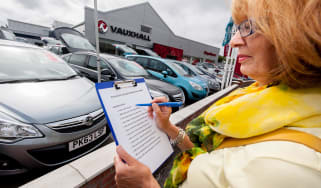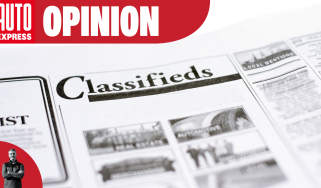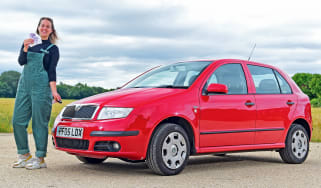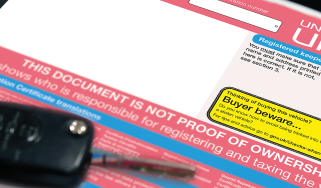What is a Lease Purchase car finance deal?
A Lease purchase finance deal offers low monthly payments but there’s a balloon payment at the end and you’re committed to buying the car
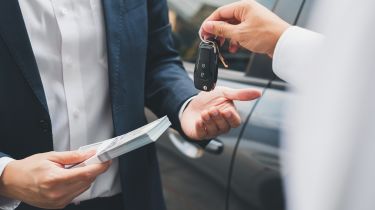
There is no shortage of ways to buy a new car on finance. Hire Purchase and Personal Contract Purchase are the most popular ways, but you might want to consider Lease Purchase as another option. Lease Purchase combines attributes of both of the more common financing methods and is a good way of keeping the initial deposit and monthly payments to a lower level.
Naturally, you can’t just walk blindly into a new finance agreement, so this guide will lay out some of the basics of Lease Purchase, from the basic process, to the advantages and disadvantages, and whether it’s likely to work for you – or whether you’d be better off with one of the other methods of buying a car on finance.
What is a lease purchase?
Lease Purchase (LP) is another method of financing a car through monthly payments, a little like Hire Purchase (HP) or Personal Contract Purchase (PCP). It’s closest to PCP in that it’s effectively broken down into an initial deposit, monthly instalments, and then a balloon payment, but it’s at this third stage that Lease Purchase gives you more options than PCP.
How does lease purchase work?
If you’re familiar with PCP then Lease Purchase isn’t too different, and the first couple of stages are largely identical. Below we’ve detailed how each stage of LP works.
Deposit
This is an initial payment that typically covers 10 per cent or more of the cost of the vehicle. Most finance agreements have a similar system, but the deposit with LP is typically a little more flexible than with HP or PCP. Some finance agreements may not even have a deposit, while dealer contributions can cover some of the amount to lower your up-front cost.
Monthly instalment
Like most car finance agreements you’ll follow the deposit with monthly payments. With Lease Purchase you can expect to pay a fair bit less than with Hire Purchase since you’re not paying off the entire cost of the car over the finance term, and may be less than PCP too, since interest rates on LP tend to be a little lower.
Final instalment (Balloon payment)
In common with PCP, Lease Purchase has a final payment referred to as a ‘balloon payment’, which essentially covers the rest of the value of the car. Unlike PCP though, you can’t just hand the car back to the finance company; buying the car is mandatory.
What isn’t mandatory though is stumping up the cash in one go, as LP often allows you to extend the agreement and continue paying monthly instalments, and you may be able to refinance too, essentially taking out a new finance agreement with its own terms and interest rate.
Advantages and disadvantages of lease purchase
Like all methods of financing a car, Lease Purchase has plenty of advantages, but also isn’t without its drawbacks. Below we’ve explained both the advantages and disadvantages of paying for a car through LP.
Advantages of lease purchase
Lease Purchase has some of the most affordable monthly payments of the common finance agreements, as it typically has a lower interest rate than HP or PCP, and like PCP doesn’t pay off the car entirely, instead deferring some of the cost to the balloon payment at the end. Unlike PCP though you won’t get any mileage limits or damage penalties, since more like HP in this case, the agreement will see you own the car at the end.
Disadvantages of lease purchase
On the downside, as buying the car is mandatory at the end of an LP agreement, there’s no avoiding the balloon payment like there can be with PCP. You’ll have to pay for it somehow, either in one go, or by extending the LP or refinancing – and the latter two options probably won’t be great value, since you’ll be paying interest for that much longer than you would with HP or PCP.
Lease Purchase also isn’t a great choice if you like to change your car frequently, since the commitment to buy means you’ll probably end up having to pay for it for longer, rather than jumping into a new finance agreement every three or four years like you can with PCP.
What is the difference between hire purchase and lease purchase?
Hire Purchase and Lease Purchase are both ways of financing cars that will see you fully own the vehicle at the end of the agreement. With Hire Purchase you’ll pay a deposit and then a series of monthly payments, at the end of which you’ll have paid for the car. Lease Purchase also uses a deposit, then lower monthly payments that don’t fully pay for the car, instead leaving a balloon payment at the end to cover the final cost.
Who can take a lease purchase contract?
If you have a good credit score (typically around 700 and up) you shouldn’t have too much trouble taking out a Lease Purchase contract. The terms of the agreement itself will depend on how much deposit you’re able to pay, and what you want to set aside for the monthly payments – and these two factors will determine the balloon payment.
Frequently Asked Questions
Lease Purchase is a finance agreement that sees you pay a deposit, a series of monthly payments, and then a final balloon payment to own a car. It’s similar to Personal Contract Purchase, but with Lease Purchase the final payment isn’t optional.
Did you know you can sell your car with Auto Express? Get the highest bid from our network of over 5,500 dealers and we'll do the rest. Click here to try Auto Express Sell My Car now...
Find a car with the experts


